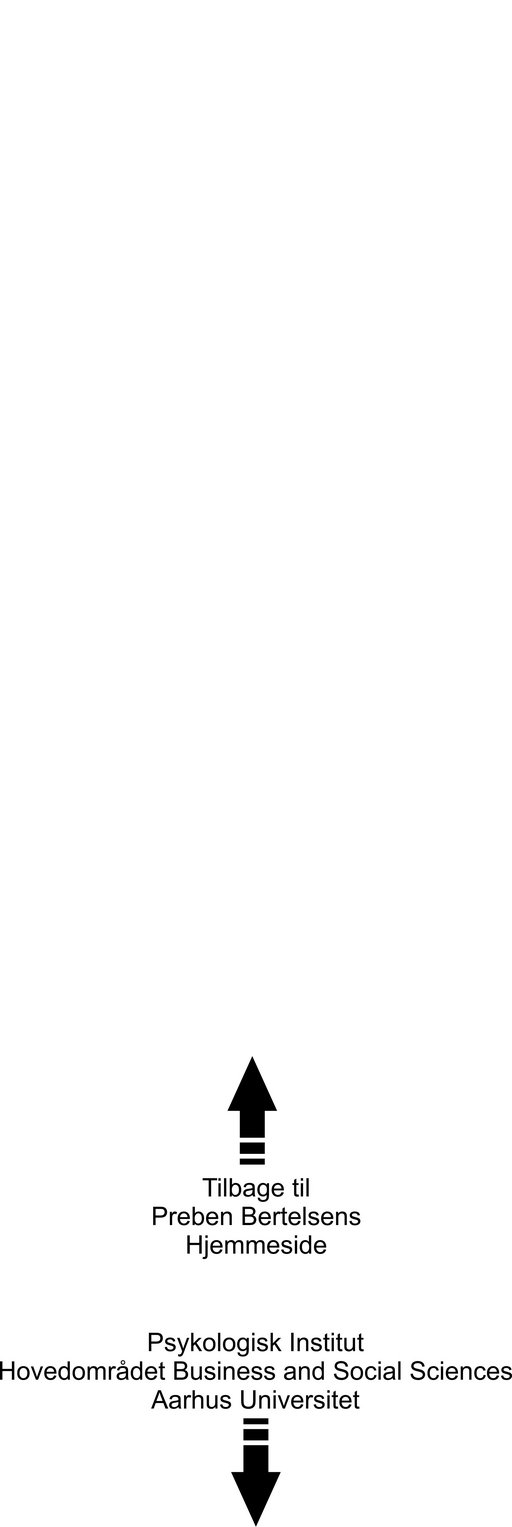Selected journal articles and book chapters
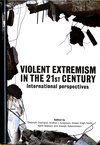
Book chapter
Bertelsen, P. (2018): Mentoring in Anti-radicalisation. LGT: A Systematic Assessment, Intervention and Supervision Tool in Mentoring. In: Overland, G, Andersen, A., Førde, K. E., Grødum, K. and J. Salomonsen (eds.): Violent Extremism in the 21st Century. International Perspectives. Cambridge Scholars Publishing: Newcastle
Abstract: There is an increasing awareness of and use of mentoring in the anti-radicalisation and de-radicalisation process. In Denmark, it is central to the so-called Aarhus Model as well as to the national Danish intervention strategy. It is well known that successful mentoring is based on the composition of a team of carefully selected mentors from which it is possible to pair a mentee with a mentor in the best possible match. This chapter offers a model for mentoring in the radicalisation process and extremism with several functions. It can both serve as a guiding model for and concrete tool in the mentoring process, as an assessment tool (supervision, initiating the process) and as a research model (based on operationalised variables) directed at documenting the effect of mentoring.
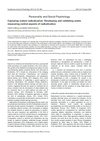
Kruglanski, A. & Bertelsen, P. (2020 - in press): Life Psychology and Significance Quest. A Complementary Approach to Violent Extremism and Counter Radicalization. Journal of Policing, Intelligence and Counter Terrorism. DOI: 10.1080/18335330.2020.1725098
Abstract: We compare two recent psychological theories of violent extremism that share substantial commonalities: (1) The Life Psychology model (Bertelsen, 2015) that underwrites the mentoring tool in the Aarhus/Danish model of countering violent extremism, and (2) Significance Quest Theory that highlights the conjunction of Needs, Narratives and Networks in prompting this phenomenon (e.g. Kruglanski et al., 2013, 2014, 2017; Kruglanski, Belanger & Gunaratna, 2019). Integration of the two theories clarifies further the conditions for violent extremism and implies practical guidelines for reducing it.

Ozer, S, & Bertelsen, P. (2020): The Moral Compass and Life Skills in Navigating Radicalization Processes: Examining the Interplay among Life Skills, Moral Disengagement, and Extremism. Scandinavian Journal of Psychology. DOI: 10.1111/SJOP.12636
Abstract: The present study investigated the interplay among deficient life skills, moral disengagement, and extremist attitude across two national contexts. Using a sample of young students in high school or college (N = 686) the present study found significant indirect effects between deficient life skills (agency and structure) and various aspects of an extremist mindset through moral disengagement These findings suggest that these two psychological concepts of life skills and moral disengagement are relevant for understanding and countering violent radicalization processes; that is to say that morality can direct the life skills toward either violent extremism or nonviolent, legal civil participation. Furthermore, the development and empowerment of life skills could enhance individual resilience to morally disengaging narratives and radicalized ideologies.

Ozer, S. & Bertelsen, P. (2019): Countering Radicalization: An Empirical Examination from a Life Psychological Perspective. Peace and Conflict. DOI: 10.1037/pac0000394
Abstract: Life Psychology has emerged as an integrative framework theory that recently has been applied in interventions preventing and countering radicalization processes. The theory emphasize the interplay between generic life tasks and skills through which the individual is able to reach a god enough life embedded within a secure attachment to the sociocultural context. Through cross-national samples from the US and Denmark, the present paper operationalize and validate the central concepts of life skills and life-attachment. Furthermore, these measures are applied in a statistical model finding insecure life-attachment to be a root factor in relation to extremism and life skills to be moderating this relationship. Consequently, the study draws attention to how interventions can develop generic life skills as a way of preventing and countering radicalization processes. The findings are discussed in relation to relevant psychological research on radicalization and in relation to its implications.

Ozer, S., & Bertelsen, P. (2018): Capturing violent radicalization: Developing and validating scales measuring central aspects of radicalization. Scandinavian Journal of Psychology, DOI: 10.1111/sjop.12484
Abstract: Violent radicalization has emerged as an important topic of theoretical and empirical investigation motivated by the devastating face of terrorism and by the aim of preventing such expressions of extremism. One central aspect of such research inquiries is the foundation of solid measurement. In this article, we develop and validate two generic scales pertaining to (1) endorsement of extremism and (2) acceptance of violent and/or illegal means. In conclusion, the scales yielded sound psychometric properties and cross-cultural equivalence, providing a solid measure of the important aspects of extremism which can be empirically employed in elucidating generic mechanisms of violent radicalization processes.
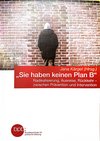
Bertelsen, P. (2018): The fight against violent extremism: The Aarhus Model. In: Jana Kärgel (ed): "They have no plan B. Radicalization, Departure, Return - Between prevention and intervention. Bundeszentrale für politiche Bildung, 154-170.
From the outset the Aarhus Model had two distinguishing features. First, it follows the important Danish principle of helping people who for different reasons see themselves as excluded from society to participate in that society again, and to do so as recognized, active fellow citizens – insofar as that is possible (i.e. without being naive and without endangering the security of others).
Secondly, the Aarhus Model is based on a unique legal institution unknown in many other countries outside Scandinavia that enables schools, social services and the police to work together to facilitate the exchange of information between young people, the police and other authorities. Known as SSP, this collaborative framework has existed in Denmark for more than forty years. Originally designed to combat juvenile crime, it has since proven to be a very efficient instrument. It facilitates concrete, specific work in line with the individual young person’s needs by facilitating the exchange of information and assembling of appropriate teams that can take whatever action is seen as best in a particular case. So it was natural for the Aarhus Model to fall back on this tried and trusted SSP collaboration in order to focus especially on adolescents at risk of radicalization

Bertelsen, P: (2017): Der Kampf gegen gewaltbereiten Extremismus. Das Aarhus Model. In: Kärgel, J.: Sie haben keinen Plan B: Radikalisierung, Ausreise, Rückkehr – zwischen Prävention und Intervention. Bundeszentrale für plitiche Bildung, Bonn, 173-193
Man kann sagen, dass ein bürgersinnstiftendes „Im-Griff-haben“ des Lebens im Rahmen einer pluralistischen Demokratie, die Raum für alle bietet, den Kern des Aarhus-Modells ausmacht, zumindest aus meiner Sicht. Ein zufriedenstellendes „Im-Griff-haben“ des eigenen und des gemeinsamen Lebens ist zugleich der Kernbegriff der Lebenspsychologie, die grundlegend für das Aarhus-Modell ist.
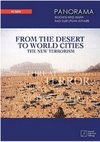
Introduction: Short presentation of the Aarhus Model & Life Psychology

Lindekilde, L., Bertelsen, P., & Stohl, M. (2016). Who Goes, Why, and With What Effects: The Problem of Foreign Fighters from Europe. Small Wars and Insurgencies, 27(5), 858-877. DOI: 10.1080/09592318.2016.1208285
Abstract: This article explores the phenomenon of Islamist foreign fighters, more specifically the movement of European Muslims to participate in the insurgencies in Syria and Iraq connected to the Islamic State/Daesh as well as the anti-Assad forces in Syria and the implications for European state stability. Drawing on personal psychology, social psychology and social movement theory the article offers an integrated theoretical framework to analyze the radicalization of Islamist foreign fighters. Building on Danish data of Islamist foreign fighters the article provides a first test of the analytical usefulness of this framework. The article further considers what distinguishes the Islamists that go from those that under similar circumstances stay behind, and whether this is a differences of kind or a difference of degree. Finally we discuss the question of how much of a threat foreign fighter returnees pose to European states.

<link>Lindekilde, L. & <link>Bertelsen, P. (2015): Voldelig transnational aktivisme: Islamisk Stat, foreign fighters og radikalisering. Dansk Sociologi. 26, 4, s. 29- 51 https://rauli.cbs.dk/index.php/dansksociologi/article/view/5035/5466
Abstract. Denne artikel undersøger, hvordan radikaliseringen og mobiliseringen af danske foreign fighters foregår, og hvad der motiverer unge danske muslimer til at drage i krig for en voldelig, revolutionær bevægelse som Islamisk Stat. Den offentlige danske debat om foreign fighters tegner et billede af unge, som via bestemte moskémiljøer, studiekredse i Danmark samt internettet radikaliseres til at tro, at væbnet kamp for kalifatet er en religiøs pligt. I kontrast til dette argumenterer artiklen for, at mange foreign fighters i høj grad motiveres af personlige udfordringer, fremmedgørelse og søgen efter mening med tilværelsen snarere end af dybt forankrede og reflekterede politiske og religiøse overbevisninger. I deres søgen efter et tilhørsforhold og mening kommer de unge på forskellig vis i kontakt med radikaliserende miljøer, hvor ensidig deliberation polariserer de unges holdninger. Artiklen præsenterer en interdisciplinær teoretisk model af radikalisering, hvis frugtbarhed diskuteres via analyse af illustrative casestudier af danske foreign fighters, som er rejst ud for at kæmpe for Islamisk Stat. Ved at stille skarpt på mobiliseringen af foreign fighters og tilbyde en forklarende ramme herfor, bidrager artiklen til teori om sociale bevægelser, som alt for ofte alene beskæftiger sig med mobilisering af progressive, pro-demokratiske og ikkevoldelige bevægelser
.
.
